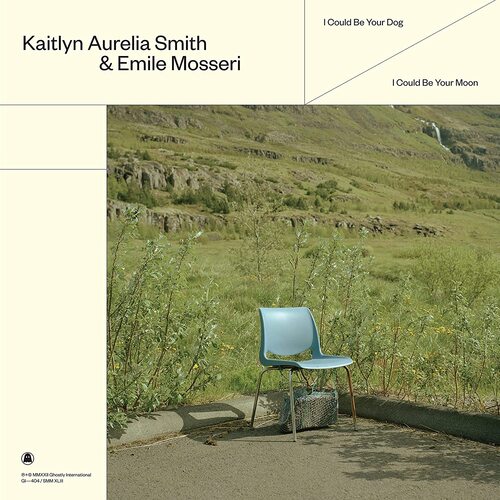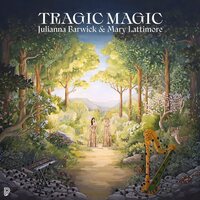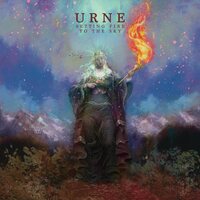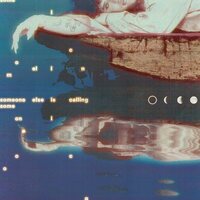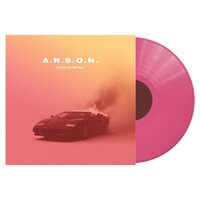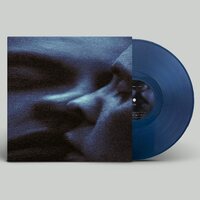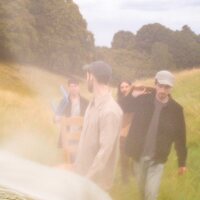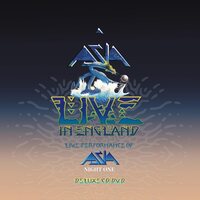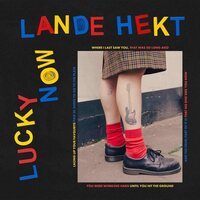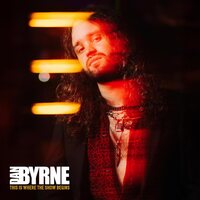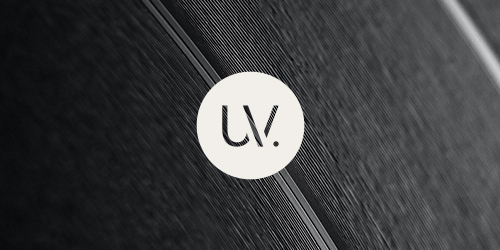His music filled me with the urge to connect with the world," Kaitlyn Aurelia Smith says of Emile Mosseri. She first heard his work while watching the 2019 film The Last Black Man In San Francisco; just minutes in, she paused it to look up who did the score and wrote to him immediately. "I love Emile's ability to create melodies that feel magically scenic and familiar like they are reminding you of the innocence of loving life." Those talents saw recognition in 2020 with an Oscar nomination for Mosseri's original score to the film Minari. He was already a fan of Smith's and became increasingly intrigued by her impressionistic process as they started to talk. "The music feels so spiritual and alive and made from the earth," Mosseri says. "I think of her as the great conductor, summoning musical poetry from her orchestra of machines." I Could Be Your Dog / I Could Be Your Moon, their two-part collaborative album, introduces an uncanny fusion of their sonics. Constructed using synthesizer, piano, electronics, and voice, this soft-focus dream world is lush, evocative, and fleeting. It finds two composers tuning their respective styles inward as an ode to mutual inspiration, a celebration of the human spirit and it's will to surrender to the currents of life. Early into their correspondence, Smith and Mosseri realized they were neighbors in Los Angeles and met up for a few hikes. Their conversations led to a musical exchange over email. The exercise became a sketch, the start of their first song together, "Log In Your Fire," with Mosseri finding flourishes in Smith's cathartic synth lines to intonate and harmonize alongside. Lyrically, it's a beautiful, open-ended sentiment. "Being a log in someone's fire, to me, means letting go, and surrendering to that feeling," says Mosseri. From there, the pair composed a series of musical foundations, trading files from afar, nurturing the eventual expansion as the remote days of 2020 set in. Smith likens the collaborative experience to the exciting uncertainty of starting a garden, "doing what I can to facilitate growth while enjoying the process of being surprised by what will actually grow." In the summer of 2021, the duo finished work on the sequel, I Could Be Your Moon, expanding their musical language as the first part reached it's September release. Songs from these more recent exchanges find them even more synced, forging into percussive and harmonic experiments, leaning further into their "unused musical muscles," as Smith and Mosseri put it. A unified vocal presence emerged. "As the friendship grew I think we both learned how to support each other more and musically that was communicated through singing together," adds Smith. Now taken as a full album set, I Could Be Your Dog / I Could Be Your Moon moves fluidly from track to track, panning through textural vignettes. Two roughly 17-minute halves, the set evokes the bittersweet sense of something too bright or rare to last, a short-lived glimpse into a golden hour. "Moon In Your Eye" sends a choral refrain skyward; we stay behind, watching it haze away in the heavens. "Brush" bubbles with Smith's characteristic wonder and curiosity, expressed in a flutter of horn-like sounds, leading into the album's central expression, it's titular track. Above pulsing harmonies, in his tender falsetto, Mosseri repeats variations of the mantra, "I don't want to feel / lost anymore /I can't make you what I am." He says the idea they are reaching for is more abstract and universal, "It could mean I could be your friend / buddy, I could be someone / something else, I could transform, I could be your companion, etc. What I like about it is it could change based on what that means to you, or what the word dog means to you.
Release date:
May 27, 2022
Label:
Install our app to receive notifications when new upcoming releases are added.

Recommended equipment and accessories
-

Nobsound Little Bear T7 Tube Preamp
Delivers rich, warm audio through its high-quality vacuum tubes, featuring multiple inputs and adjustable gain
-
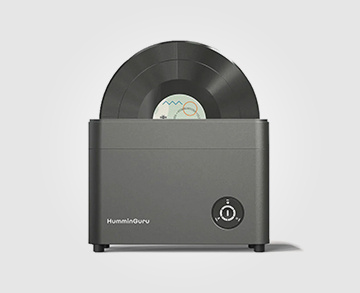
HumminGuru: Ultrasonic Vinyl Record Cleaner
Advanced ultrasonic technology with customizable cleaning cycles and a large tank capacity to thoroughly remove dust, dirt, and contaminants
-

Edifier R1280DB Powered Speakers
Combining classic design with modern Bluetooth connectivity, built-in amplification and versatile inputs, these speakers deliver rich, balanced sound.
-
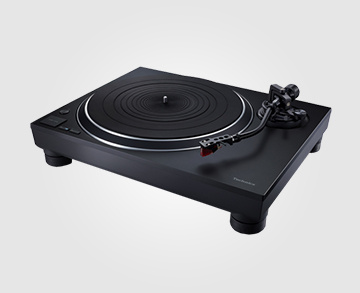
Technics SL-1500C Turntable
Features a direct-drive motor, a high-precision tonearm, and a premium MM cartridge, delivering exceptional sound quality
-

Turntables - Top Picks
A selection of reliable record players you can buy today, for every budget
Featured Upcoming Vinyl
-

Julianna Barwick & Mary Lattimore Tragic Magic
Infine
February 20, 2026 -

Urne Setting Fire to the Sky
Spinefarm
February 20, 2026 -

Hercules & Love Affair Someone Else Is Calling
Stratasonic
January 30, 2026 -

Alexis Taylor Paris In The Spring
Night Time Stories (NTS)
March 13, 2026 -

Story Of The Year A.R.S.O.N. (Hot Pink)
Sharptone
February 13, 2026 -

Puma Blue Croak Dream (Deep Ocean Blue)
Play It Again Sam
February 20, 2026 -

Ye Vagabonds All Tied Together
River Lea Records
January 30, 2026 -

Charlotte Cornfield Hurts Like Hell (Yellow)
Merge Records
March 27, 2026 -

Ludacris Back For The First Time [2xLP]
Def Jam
February 20, 2026 -

John Hollier & the Rêverie Rainmaker
WhollyABar
March 20, 2026 -

Asia Live In London [2xLP]
Frontiers New Recordings Physical Only
March 13, 2026 -

Lande Hekt Lucky Now
Tapete Records
January 30, 2026 -

Rip Magic 5Words
Dfa Records
March 6, 2026 -

Dan Byrne This Is Where The Show Begins
Frontiers New Recordings Physical Only
May 22, 2026
